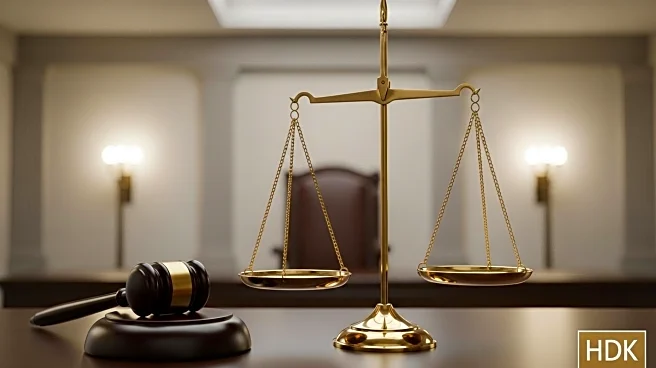What's Happening?
The Justice Department has indicted former FBI Director James Comey, alleging he falsely testified to Congress in 2020 about authorizing someone to be an anonymous source in news stories. The indictment, which is only two pages long, claims Comey lied during a Senate Judiciary Committee hearing when he denied authorizing anyone at the FBI to be an anonymous source to the media. The indictment is part of a long-standing feud between President Trump and Comey, stemming from Comey's role in the investigation into Russian interference in the 2016 presidential election. The indictment has sparked controversy due to its brevity and the complex history of investigations involving Comey, including those related to Hillary Clinton's use of a private email server.
Why It's Important?
The indictment of James Comey is significant as it highlights ongoing tensions between President Trump and former FBI officials. It underscores the political and legal battles that have characterized Trump's presidency, particularly regarding the investigation into Russian interference in the 2016 election. The case could have implications for the credibility of the Justice Department and its handling of politically sensitive investigations. It also raises questions about the use of legal proceedings in political disputes, potentially affecting public trust in federal institutions. The outcome of this case could influence future interactions between political leaders and law enforcement agencies.
What's Next?
The indictment sets the stage for a trial where evidence will be presented to determine the validity of the charges against Comey. The trial could further expose the intricacies of the investigations into Russian interference and the Clinton email server. Political leaders and legal experts will likely scrutinize the proceedings, and the case may influence public opinion on the Justice Department's impartiality. Depending on the trial's outcome, there could be calls for reforms in how political investigations are conducted. The trial may also impact Comey's reputation and his future involvement in public affairs.
Beyond the Headlines
The indictment of Comey could have broader implications for the relationship between political leaders and law enforcement agencies. It raises ethical questions about the use of legal processes in political conflicts and the potential for such actions to undermine the integrity of federal institutions. The case may also prompt discussions on the balance between transparency and confidentiality in government operations, particularly concerning media interactions. Long-term, this development could influence how future administrations handle politically charged investigations and the role of the Justice Department in maintaining impartiality.









